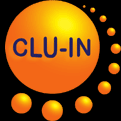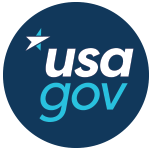Training Presentations
Training Presentations
To accompany demonstration projects and guidance documents, the EPA also provides training for EPA staff and other federal agency, state, tribal and local staff involved in hazardous waste management and remediation. Examples of this training include presentations and short-courses at EPA training conferences (such as the EPA’s National Association of Remedial Project Managers [NARPM] Training Program) as well as Regional trainings, conference courses and internet seminars, each of which are often open to the public. More detailed information on the EPA’s optimization training efforts, including upcoming events, can be found on this website.
To date, the EPA’s optimization-related training includes the following efforts, with training materials available for download, where appropriate:
EPA-Sponsored Training
Effective Strategies for Improved Design and Long-Term Management of Groundwater Remedies
This training course introduces four EPA fact sheets that discuss optimal design, operation, maintenance and monitoring of pump and treat systems. It was delivered to the National Association of Remedial Project Managers (NARPM) on May 26, 2004.
- Presentation Slides: O&M for 2004 and Beyond: New EPA Fact Sheets (PDF)
Capture Zone Analysis for Pump and Treat Systems
This training course on groundwater plume capture has been delivered in various forms to the NARPM and other audiences.
Long-Term Monitoring Optimization Methods and Software
This workshop provides an overview of the following field-tested methods/software for optimizing existing site-specific long-term groundwater monitoring programs that are tracking contaminant migration. It was delivered at the "Accelerating Site Close Out, Improving Performance, and Reducing Costs through Optimization Conference" on June 16, 2004.
- Abstract
- Presentation Slides: Triad Case Studies from the Navy (2.7MB/42pp/PDF)
- Presentation Slides: Geostatistical LTM Optimization Using GTS (1.8MB/36pp/PDF)
- Presentation Slides: Accelerated VOC Source Investigation Pairing SCAPS/MIP with EPA Triad, Marine Corps Base Camp Pendleton, California (1.8MB/42pp/PDF)
Long-Term Monitoring Optimization (LTMO) Workshop for NARPM
This abbreviated version of the LTMO Seminar was presented to the NARPM at its May 2005 meeting in Phoenix, AZ. The workshop provided EPA RPMs with information about new LTMO approaches that can assist them in overseeing groundwater monitoring at Fund-lead and PRP-lead sites, the benefits of the various methods and the pitfalls to be avoided.
- Introduction: Long-Term Monitoring Optimization for Ground Water Seminar (84K/16pp/PDF) by Ellen Rubin, U.S. EPA
- Presentation Slides: Roadmap to the 7 Steps of LTMO (1.5MB/48pp/PDF) by Dave Becker, U.S. Army Corps of Engineers
- Presentation Slides: Overview of Available LTMO Methods (1MB/45pp/PDF) by Kirk Cameron, MacStat Consulting, Ltd.
- Presentation Slides: Reviewing LTMO Evaluation (73K/16pp/PDF) by Dave Becker, U.S. Army Corps of Engineers
- Presentation Slides: LTMO Case Studies (2.2MB/41pp/PDF) by Kirk Cameron, MacStat Consulting, Ltd.
Long-Term Monitoring Optimization (LTMO) for Groundwater Seminar
The U.S. Environmental Protection Agency, California EPA, the U.S. Army Corps of Engineers, the U.S. Air Force and the U.S. Navy sponsored the first seminar on "Long-Term Monitoring Optimization (LTMO) for Groundwater Seminar" in March 2005. This seminar provided state and federal regulators with information about new quantitative methods of LTMO for groundwater to assist them in making appropriate decisions regarding the optimal location and frequency of groundwater monitoring and the approval of changes to groundwater monitoring networks. The seminar also included hands-on training in the use of three of these methods: the Monitoring and Remediation Optimization System (MAROS), the Geostatistical Temporal-Spatial (GTS) Algorithm and the three-tiered Monitoring Network Optimization (MNO) approach.
A Workshop on Applying Optimization Algorithms and Contaminant Transport Models to Reduce Costs and Speed Remediation at Pump and Treat Sites
This workshop provides an overview of the process of using optimization algorithms in conjunction with ground water flow and transport models (“simulation optimization”) to help identify the optimal combinations of well locations and extraction/injection rates to accomplish ground water remediation with the least cost or in the least time subject to site-specific constraints. It was delivered at the "Accelerating Site Close Out, Improving Performance and Reducing Costs through Optimization Conference" on June 15, 2004.
- Abstract
- Presentation Slides: Regulatory Acceptance for New Solutions (615KB/23pp/PDF)
Past Federal Optimization Conferences
The links below provide access to previous optimization-focused conferences sponsored by the EPA in collaboration with other federal agencies.
Conference
on Accelerating Site Closeout, Improving Performance, and Reducing Costs
Through Optimization
June
15-17, 2004, Dallas, TX
This two and a half day conference sponsored by the Federal Remediation Technologies Roundtable included evening workshops, a poster session and three multi-day tracks titled, "Remediation Process Optimization," "Site Characterization, Long Term Monitoring, and Data Management Optimization," and "Strategic Considerations for Site Closeout." Evening workshops included topics such as "ITRC Presents: Essentials of Remediation Process Optimization" and "The Triad Approach to Managing Decision Uncertainty for Better Cleanup Projects."
Subsurface
Remediation: Improving Long-Term Monitoring & Remedial Systems Performance
June 8-11, 1999, St. Louis, MO
As part of the Federal Remediation Technologies Roundtable, U.S. EPA and the U.S. Departments of Defense, Energy and the Interior hosted this conference to highlight successes and issues related to improving the performance of subsurface remediation technologies, to showcase practical approaches to cost-effective monitoring, and to identify research gaps and needs.
- FRTR Meeting and Conference Materials
- Conference Proceedings: Subsurface Remediation: Improving Long-Term Monitoring & Remedial Systems Performance




